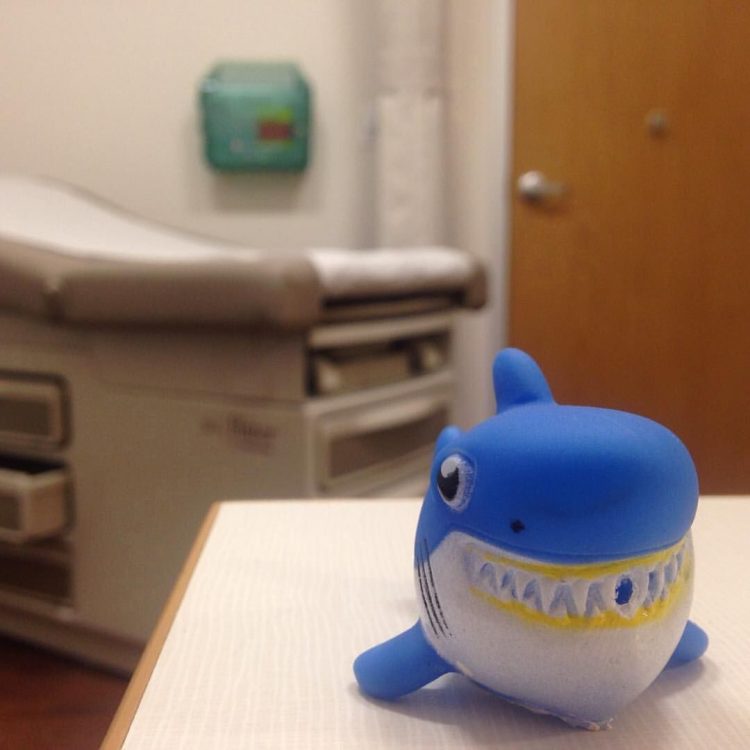While I have dealt with my chronic illness my whole life, I have only recently been diagnosed as having an illness. I grew up with a mother who had a chronic illness that was invisible, yet relentless in causing her pain. So, I have never really doubted anyone else who has struggled with an invisible illness. But, I find it funny that neither my family nor my doctors ever thought I could have my own invisible illness. It is no one’s “fault” that I was only diagnosed at 25 years old. It is just how it happened. But, in adulthood, I champion my own mother for being a strong influence on my own stance on caring for myself after my diagnosis.
Now, while I have been diagnosed as having a chronic illness, that doesn’t mean they have narrowed down exactly what that illness is. I have been lumped into the group of autoinflammatory illnesses and pegged as having something similar to PFAPA (periodic fever, aphthous stomatitis, pharyngitis, cervical adenitis), a syndrome seen in children. At 29 years old, I like to joke that I have never fully grown up.
My illness, in general, is invisible. I get sick once a month and it usually manifests like the flu or another cold with a fever and inflammation. I am sure so many of us with invisible illnesses have had the experience of being made to feel like we are just lying to ourselves about the situation. I have been told many times I must be a hypochondriac and I am making things up about my health. But, blood tests don’t lie.
And some part of me wishes I could in some way prove my illness exists to everyone who slings those doubtful words my way.
My experience of having an invisible illness has felt so isolating at times. My condition means I am not always sick and sometimes I am just fatigued or even feel completely fine, depending on the day. I have been lucky to connect with a few friends and coworkers who also struggle with invisible illnesses. This connection has been an incredible lifesaver for me, along with websites of community like The Mighty.
Having an invisible illness is the hardest for me in a work environment. I fall into the category of being chronically ill, but still able to work. I feel lucky in that respect. But, for those of you who also fit into that category, I think there can be some challenges in the office environment.
I have been so lucky to have worked for some truly excellent and compassionate companies over the years. And I have been so thankful for the Family Medical Leave Act (FMLA). But, simultaneously, I have felt some pressure in the workplace to never be out sick and always give 200 percent, working late nights and giving my whole self to a job. But, I think it boils down to knowing your limitations. For me, I know an increase in stress, lack of sleep or lack of healthy meals will lead me to being knocked off my feet. I will be no good to anyone once I pass a certain point and self-care is incredibly important, especially to someone with a chronic condition.
Having an invisible illness has, at times, made it difficult to relay my limitations to my coworkers. In certain instances, I have shared the fact that I have a chronic illness with coworkers and have had varying reactions. The ones that sting the most are those who do not believe it and push back. Those who are supportive are amazing. But, those who have doubts tend to make the workplace seem isolating.
I wish I had wise words to share on how to make these situations better. I cannot say I am an expert on workplace politics and I truly believe each situation is different. I also believe that having an invisible illness does not have to be a negative in a workplace environment.
Now, I am a social worker. I have a strange knack for empathy and love to make connections wherever I go. But, when all else fails, I can remember I have my own community of people to fall back on here at The Mighty or through my online support group.
To all those who feel isolated by their invisible illness, remember there are many online communities available to connect. And if all else fails, you are more than welcome to get in touch with me. I may not be the coolest spoonie around, but I think I am pretty OK company.
We want to hear your story. Become a Mighty contributor here.
Thinkstock photo via Siri Stafford.


